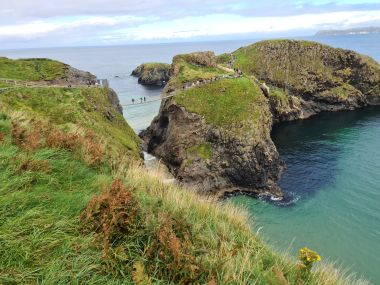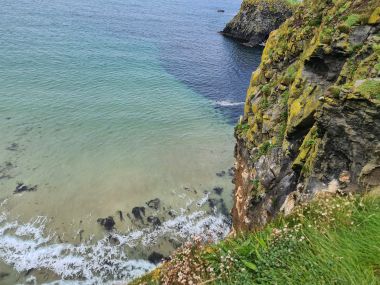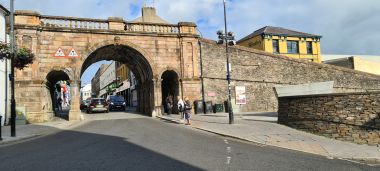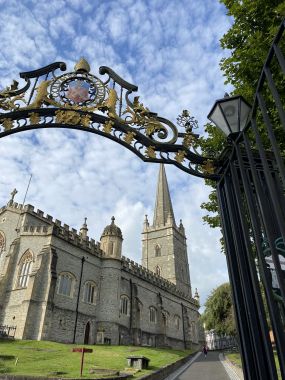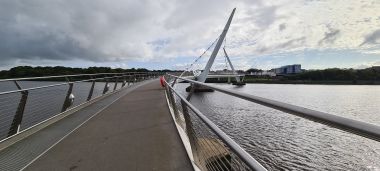Northern Ireland
Though small, Northern Ireland has some wonderful landscape and the attractions of the big city in Belfast. No concerns about security nowadays it is worth a visit.
Belfast
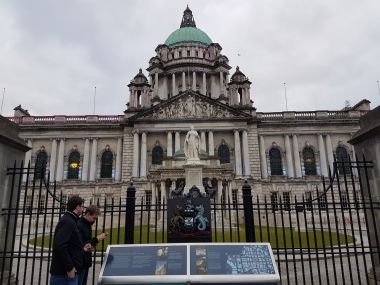
I can't say I am a huge fan of the city itself and felt uncomfortable walking the streets after the shops in the centre had shut for the day. There are, however, lots of interesting restaurants though there are the requisite historic locations such as the city hall and the famous “Ulster Hall” (concert hall).
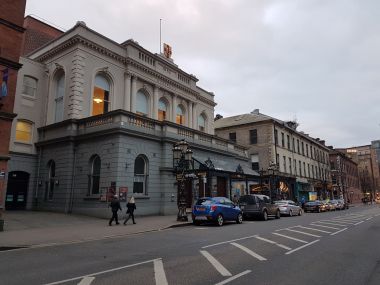
Public transport is easy enough to use but as the city is quite compact it is only a short distance from one place to another in the city centre.
Titanic Belfast
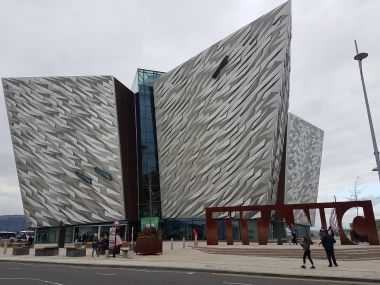
Probably the most popular attraction in Belfast Titanic Belfast is located in the new Belfast “Titanic Quarter” immediately adjacent to where the Titanic and it's sister ship the Olympic were built.
Tickets to the exhibit are timed so it is recommended, particularly on weekends or holidays, to purchase your tickets in advance. Entry is expensive and includes admission onto the nearby “SS Nomadic” - The last White Star ship that served as tender to the Titanic.
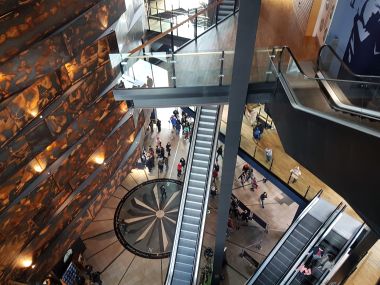
There is an underground car park (ticket on entrance, pay at the machine before exit) below the building itself. The tall modern structure has a ground floor with several restaurants, a gift shop, and ticket facilities. To enter the exhibit (at the correct time) your picture is taken for a souvenir photo before taking an escalator to the first floor entrance. The exhibit starts with historical context for the Titanic's creation before taking you through the building of the ship (including a short, slow roller-coaster type ride that takes you through a mock up of some of the aspects of the construction including the attaching of the millions of rivets that were used on it's hull), the horrific disaster, the subsequent inquiry, the Titanic in films then the final section talks about the discovery of the Titanic on the ocean bed and underwater exploration (oddly, it completes with a tourism display on Belfast…).
The optional cost audio guide is good but there is a lot of material on display. Allow for at least 3 hours to visit if you want to actually appreciate most of what is on offer. The video towards the end of the wreck is well worth sitting down to watch in it's entirety. I would also suggest a visit to the slipway at the back to get a true understanding of the enormous size of the ship and a rather poignant visual depiction of the loss of life compared to the survivors from each of the three classes of passengers on board (and the often overlooked staff).
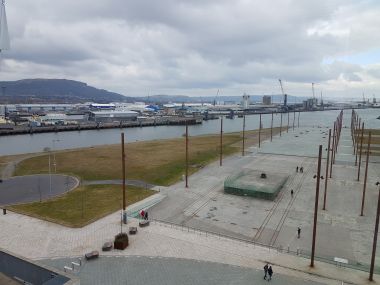
I was concerned about the insensitivity towards the loss of life but I feel it was handled quite well with a section (admittedly, fairly small) devoted to the survivors telling their stories but also the stories of those that did not survive. They speak for themselves.
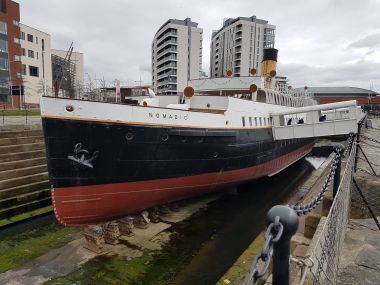
The visit to the “SS Nomadic” nearby is certainly worthwhile as it gives you a more hands-on appreciation of what it must have been like to travel on the ship and adds a different perspective on the story.
Carrick-a-Rede Rope Bridge
Carrick-a-Rede is a unique attraction on the northern coast of Ireland consisting of walking trails along the cliffs and a rope bridge across to a small rocky outcrop. It is a short distance east of the Giant's Causeway and just west of Ballycastle.
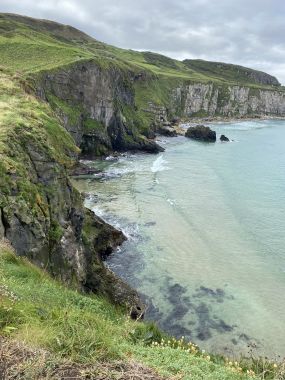
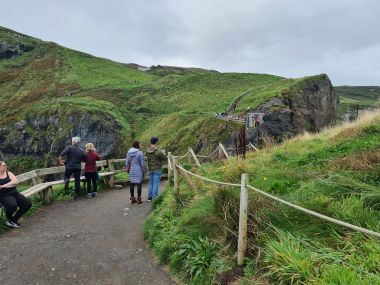
The walk into the rope bridge is about a mile along the top of the cliffs overlooking the Atlantic. The path is well marked and easy going.
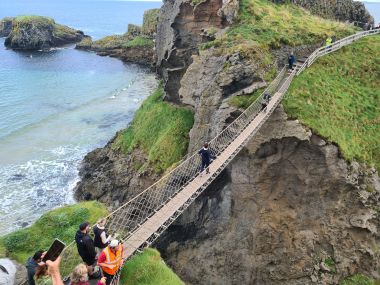
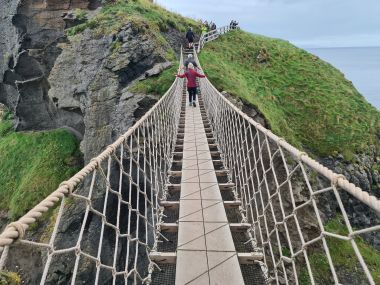
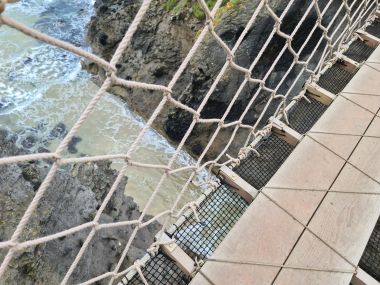
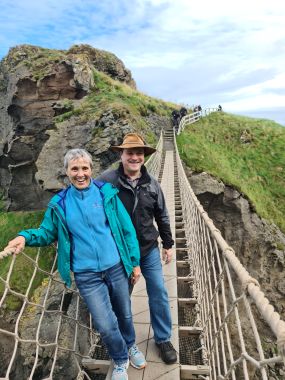
The parking on site in the large gravel car park is free for those with tickets for Carrick-a-Rede. There is a small café and toilet block at the end of the car park but otherwise there are no other facilities. There are National Trust employees who ensure the rope bridge is crossed safely (and in one direction at a time only!).
Note that it is critical you purchase tickets online in advance as the site gets very crowded and they time access to ensure there is no congestion.
Derry (Londonderry)
Londonderry or “Derry” is the second largest city in Northern Ireland and the site of many tragic events during the “troubles” of the 20th century. It is a small walled city on the banks of the River Foyle. Though not a lot to see here it is interesting for a short visit.
The old part of the city, “The Derry”, is on the west bank of the river and is surrounded by walls that can be walked through as it is on a hill it can be a bit steep in places.
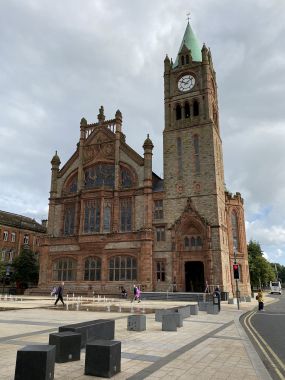
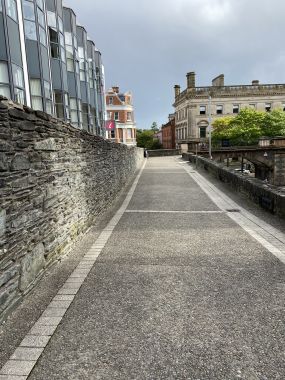
Near the river is the wonderful Guildhall which is free to visit and often has local displays. Nearby near the city walls is the tourist information which has loads of brochures, displays and can arrange accommodation.
On the river is the famous “peace bridge”, a modern bridge linking the east and west banks of the river, designed to improve relations in the city and is well worth a visit.
Three is parking throughout the centre of the city. We used the large multi-story car park at Foyleside Shopping Centre.
Giant's Causeway
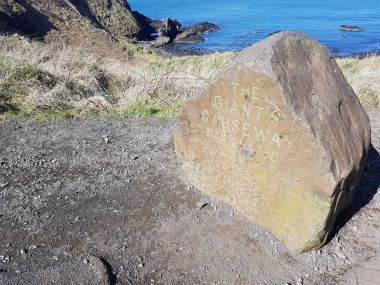
Located just to the north of Bushmills on the north coast of County Antrim the Giant's Causeway is the regions single most popular tourist attraction. The Giant's Causeway is a unique geological formation of stones in the ocean that capture the imagination. Simply incredible and one of my “bucket list” items.
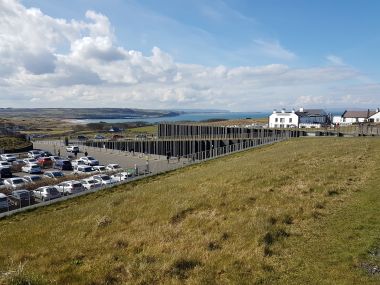
A new National Trust visitor centre is the main entrance to the site. Though the entrance fee is quite expensive it gives you access to the visitor centre (having a cafe, more toilets, exhibits, a shop and a video show) as well as a very useful (and amusing) audio guide (use the hands-off ear piece and the guide will automatically start when you approach areas of interest). Evidently the fee also pays for the car park though no one there checked to make sure we paid. There are lots of car parking spots both at the visitor centre and off-site (there is even a shuttle to the site from Bushmills).
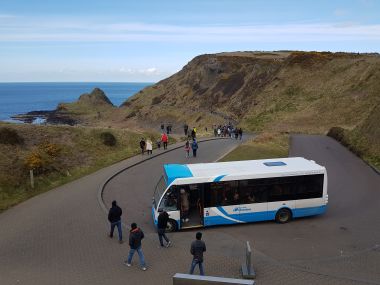
At a small additional charge you can pay to take a bus directly to the Giant's Causeway itself which is about a mile walk down to the water's edge from the visitor's centre as it takes you past first “Portnaboe” (“Bay of the Cow” complete with a rock formation looking like a camel) then though the “Windy Gap” past “The Stookans” into “Port Ganny” (“Sandy Bay”) finally ending up at “The Grand Causeway” itself. The National Trust advise not walking on the rocks and sticking to the paths but advice is ignored, I suppose because of the primal attraction of the site.
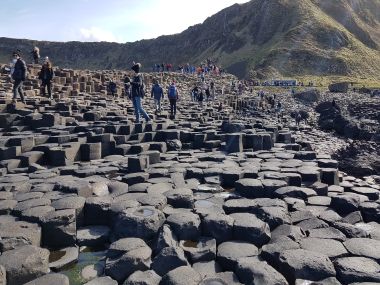
There are walks throughout the site up and down the cliffs (there are stairs leading up in “Port Noffer” (Giant's Bay) just past the causeway site. It is recommended certainly walking along the trail at the top of the cliffs to look down on the Causeway and the gorgeous bays surrounding it.
See my pictures at:
Further Information
For further information please see:
